Metronomy on going back to basics with new album ‘Small World’
One of the last great indie bands of their generation, Metronomy ask the existential questions. On the release of the band’s seventh album, 'Small World', Rolling Stone UK travels to Paris to see if frontman Joe Mount has unearthed the answers
By Selim Bulut
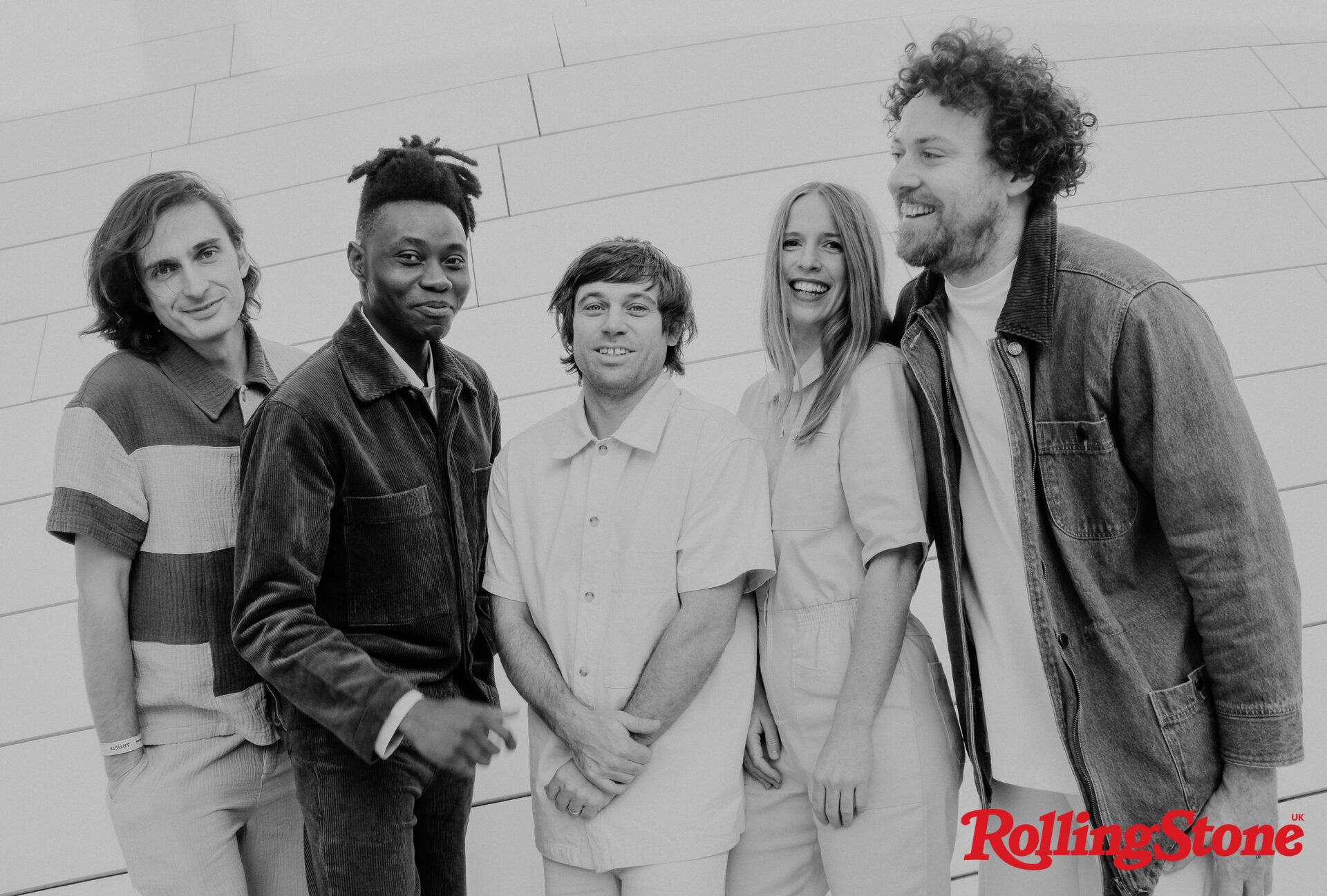
When Metronomy released their fifth album Summer 08 back in 2016, Joe Mount — the band’s songwriter, producer, and frontman — agreed with his label that they wouldn’t tour it for a year. He wanted to spend the time with his two young children, and give his bandmates a break, too — their bassist Olugbenga Adelekan had already missed the birth of his first child while playing a show.
It meant that when the UK’s first lockdown began just after the electronic pop group had wrapped up a long run of dates across North America, Mount had prior experience of a diary free of band commitments. He relished the time spent with his girlfriend and their kids at their home in the Kent countryside: home-schooling, tending the garden, exploring nature, being out of his overdraft.
But he wasn’t completely at peace; the pandemic was strange and unfamiliar, and it threw up all kinds of questions, about life and death and the bits in between. He was thinking about society, his family, his children, his art, himself. Mount is 39 years old (“approaching 40”, as he mentions more than once during our conversation), and has spent the best part of two decades devoted to Metronomy as both his primary artistic outlet and full-time job. “Where I’m at, career-wise and life-wise, you start to think: ‘What is my purpose? Where do I see this going? What is it that you find frustrating about what you do, compared to what your peers do?’”
Mount is sitting in a private room at the back of his hotel in Paris. His curly hair has grown long and he’s cradling a mug of green tea in his hands. Mount’s partner is French, and they used to live here, until they decided that a cramped inner-city apartment was not the best place to raise a family. It’s also where Metronomy’s label Because Music is based, and where the band’s biggest audience outside the UK can be found.
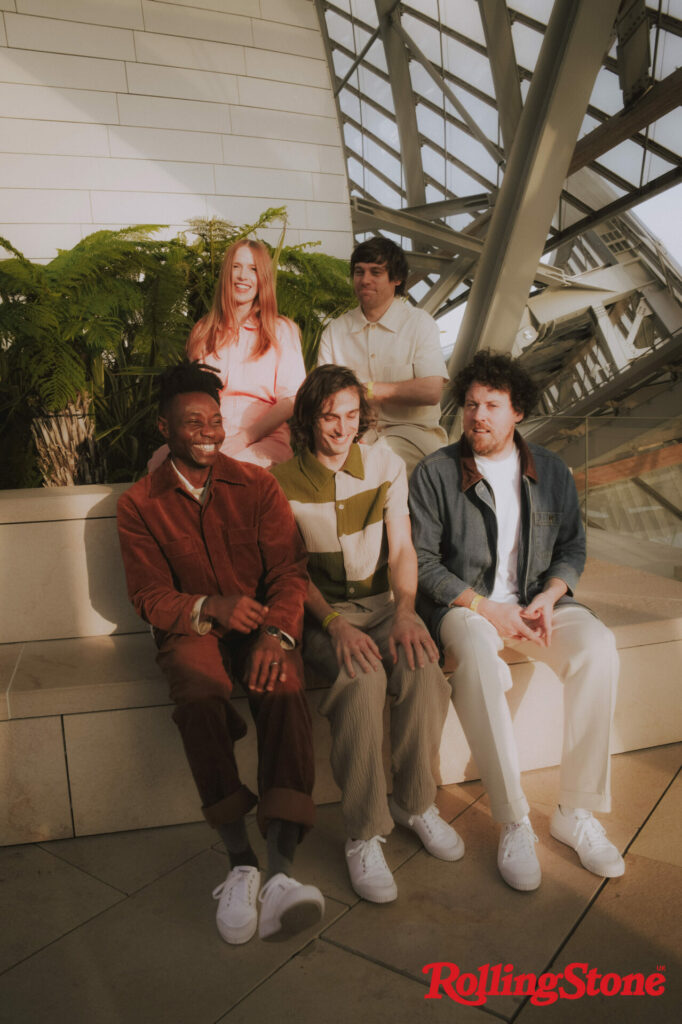
They’re in the city to play the closing concert of Pitchfork Music Festival, their third gig since the pandemic brought their last tour to a premature halt two years ago. On the set list are songs from their new album, Small World, which Mount wrote and recorded over the stop-start lockdowns and reopenings of the past two years. In one sense, there was nothing new about this: Mount has always written alone. But the band’s songs are usually recorded together. This time, social-distancing measures meant that Mount had to perform much of Small World on his own, too.
Although Mount is loath to call Small World anything as glib as a ‘pandemic album’, it’s nevertheless been shaped by the resulting shrinking of his universe, and the contrast between the serenity of his inner world and the sorrow of the world outside. The songs are more pared-down and less electronic than Metronomy’s usual style, with a focus on subtle songwriting and instrumentation. (“There’s this pleasure in hearing things played really well and in playing things really well,” Mount says.)
The album still has the buoyant, high-spirited sound and wry sense of humour that’s defined Metronomy’s work so far — there’s a whistle solo at one point — but Mount’s lyrics are preoccupied with existential questions. ‘Life and Death’, the album’s opening track, is a perfect example: “It was fun, what I did / Got a job, had some kids / See you in the abyss.”
Although Mount has never written overtly biographical songs, these feel particularly intimate, about growing up and settling down. “I’d find it too revealing, probably, to write songs explicitly about myself,” he says, “but I figured it was the first step in getting to that point.”
Small World’s cover art — a faded image of a lush garden near where Mount grew up in Totnes, Devon — reflects both its pastoral sound and its personal themes. Although the band’s album covers usually feature colourful illustrations, this is the first time they’ve used a photograph. It was taken in the mid-90s by Mount’s photographer mother, Kate Mount, who, as he explains, has inadvertently influenced the album.
When he was younger and bad things would happen in the world, his mother would tell him about similar concerns they used to have — “the Cold War”, “Mrs Thatcher”, and so on — and that “generationally, bad shit happens to everyone”. But when COVID hit, Mount started to question this wisdom. “I thought, ‘I don’t think my mum is right any more.’ In the past 10 to 20 years, there’s been a lot of bad stuff. The reassurance she was able to offer, I’m not really able to offer the same. You can tell your kids things are fine, but you have no idea if they really will be. I enjoyed how throwaway that particular phrase was, and how much of an impact it has on the people you’re reassuring.”
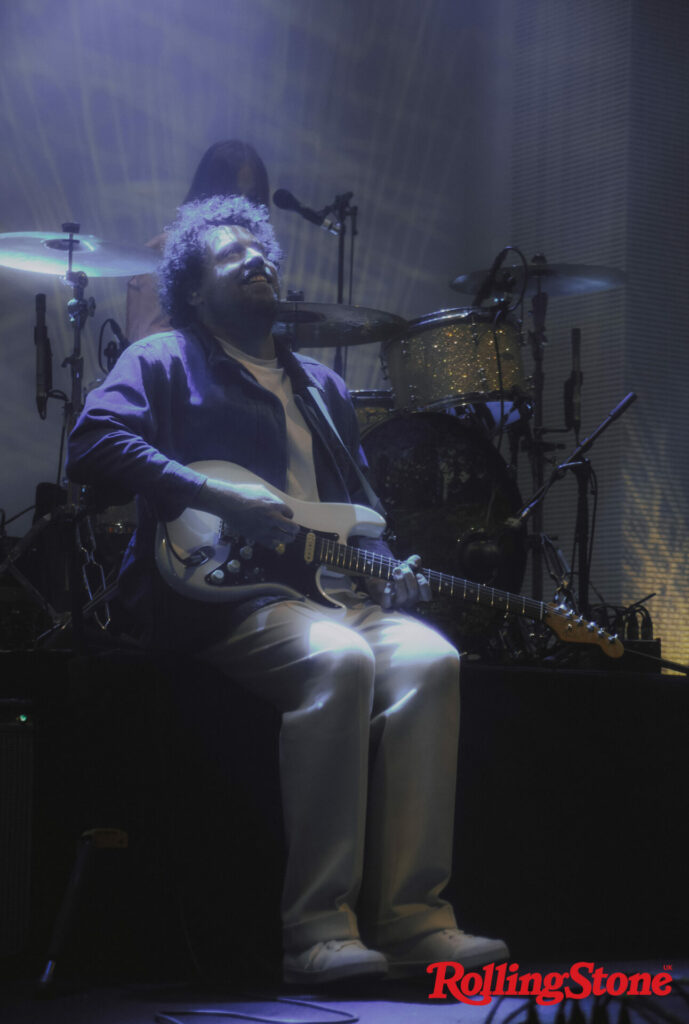
The phrase “Things will be fine” became the title of one of Small World’s best songs, but the album uses these clichés in other places too, including lead single ‘It’s Good to Be Back’. The title is both a joke about how good it is to be playing live again, and how great it was not to be playing live. “The song itself was about being back home — it’s good to not be touring, it’s good to be back,” he says.
“I also liked the idea of bagsying this song title. If you look at a picture of any band on Instagram doing their first gig, they all say, ‘It’s good to be back!’ Everyone is writing this same platitude. But they still feel it! And it’s true. I realised that a lot of songs I was writing had these platitudes. It’s all we have, these totally inadequate ways of talking about these experiences.”
A few hours later, the rest of the band — Adelekan, Oscar Cash (keyboard), Anna Prior (drums), and Michael Lovett (guitar) — join Mount for their Rolling Stone UK shoot. The venue is the Louis Vuitton Foundation. Designed in a postmodern style by Frank Gehry, it houses a large art gallery and museum, as well as a 1,000-capacity auditorium, where Metronomy will later play surrounded by the works of abstract painter Ellsworth Kelly. The group huddle together on the roof terrace in their stage outfits — the thin, pastel-coloured linen suits are doing little to protect them from the biting November wind.
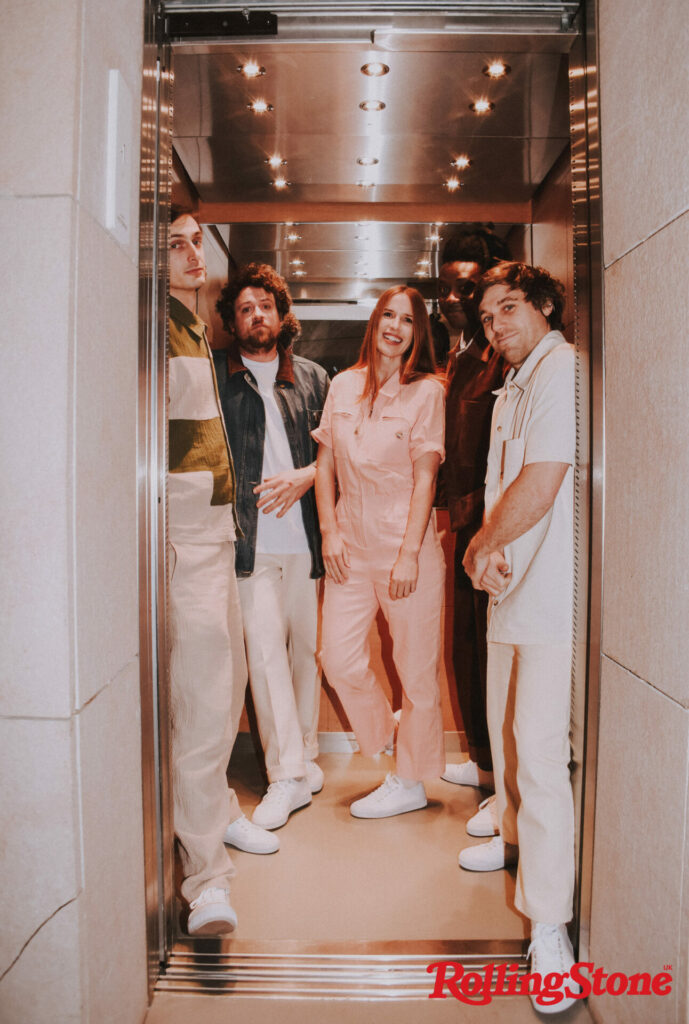
On stage, Metronomy are a tight five-piece, they appear as a group in photo shoots, and have recorded together on previous albums. And yet the band began life as a solo project of Mount’s in the early 00s while he was at university in Brighton. His debut album Pip Paine (Pay the £5000 You Owe) was an unassuming collection of wonky, mostly instrumental, electronic music that was somewhat awkwardly lumped in with the new-rave scene.
Even that far back, you could hear that Mount had an ear for simple melodies and poppy hooks, but his songwriting really shone on 2008’s Nights Out, when he started adding his voice to his songs. Suddenly, Metronomy were a different proposition — a smart indie pop group with a distinctive, unusual sound.
Three years later, The English Riviera, Mount’s love letter to the Devon coast of his childhood, saw Prior and Adelekan join Mount and Cash in giving Metronomy a major crossover moment, spawning anthems including ‘The Bay’ and ‘The Look’. The record earned the group a Mercury Prize nomination, and from there their upward trajectory has continued uninterrupted.
In 2014, they headlined festivals including London’s Field Day with that year’s album Love Letters, while Summer 08 and sixth album Metronomy Forever solidified Mount’s reputation for exuberant, melodic songwriting.
Yet for every upbeat crowd-pleaser on a Metronomy album, there was always another, smaller song underscored by an implacable melancholy. Even when Mount was in his mid-20s, he was writing about ageing and nostalgia. “I’m very happy, but there is this underlying thing, where…” He pauses. “Where everyone’s gonna die!” He confides that he’s “never been inclined towards depression” because he’s good at compartmentalising: “There’s the stuff you’ll never understand and will make you feel sad at any moment you think about it. Then there’s the other side, saying, ‘I enjoy pottering around the garden. That brings about the happiness I can enjoy on Earth.’ And I guess music is where you can tap into bits of that. For me, the sad stuff and the happy stuff and humour and death, they all intermingle. It’s not like there’s a sadness that comes from anywhere in particular, but it’s something that everyone can feel.”
Before the pandemic forced him to scale down his ideas, Mount was considering how to approach the seventh album. The Metronomy frontman — whose quick sense of humour sometimes disguises how analytical and self-aware he is as a musician — always has two ways of looking at his next project. The first is subjective (what do I want from this record?), while the second is objective (what does the band’s career look like to an outsider observing from afar?). He asked himself: ‘What is the clichéd thing people do when they’re on their seventh album and approaching 40?’ The answer: an Americana album.
“I thought I’d like to do something musical, that isn’t very electronic, with real instruments. My thinking was, one, that’s a nice thing to do, and then two, that’s quite funny — someone taking themselves a bit seriously and thinking they should do a Nashville record. It’s almost a midlife crisis.”
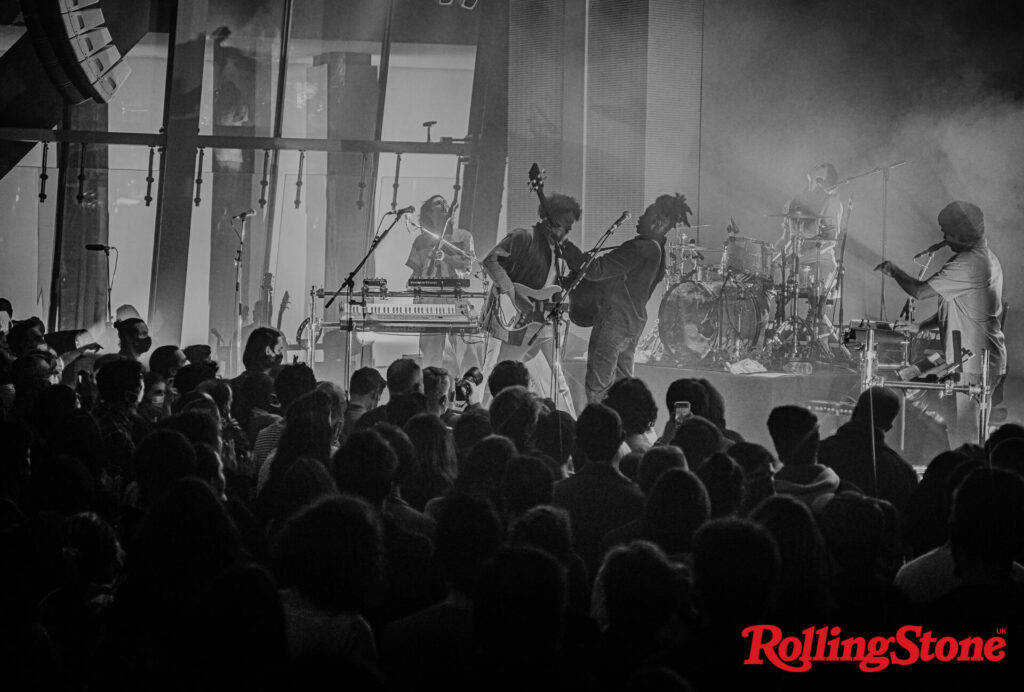
Inspiration struck when he was driving to a stag do for Michael Lovett, who joined Metronomy around the release of Metronomy Forever. After hearing a Big Thief song on the stereo, Mount binged a lot of alt-country from his youth: Joanna Newsom, Smog, Herman Düne, Cat Power, Wilco, as well as other “serious muso” songwriters such as Nick Cave and Talking Heads circa Little Creatures.
He had been considering recording with the rest of the band, but when COVID hit, he reconfigured. Nashville might have been off-limits, but Margate wasn’t. There, he met up with longtime engineer Ash Workman to record three songs he’d written during Lockdown 1.0. Mount also invited Cash, his cousin and the second longest-serving member of Metronomy, to play on the record. Following the subsequent winter lockdowns at the start of 2021, after Mount had written the rest of the album, the trio returned to Margate to finish it.
Only two other musicians appear on Small World. Composer Raven Bush adds strings to ‘Right On Time’ and ‘Hold Me Tonight’, while the latter song also features a verse from Porridge Radio’s Dana Margolin. “That song was kind of finished, but then I was listening to it and thought, ‘It’d be really brilliant if the song started again with another voice.’ A female voice, specifically, because the idea of the song was me singing about a girl,” Mount explains of the track, which tries to recall what it was like to feel unrequited love (he’s been in a relationship for 10 years). He’d imagined a happy ending: “Oh, everything’s peeerfect, we’re in looove,” he jokes, drawing out his vowels — but instead, Margolin wrote a verse that undermined the rest of his lyrics. “She wrote this idea that the person you’ve been pining after is not interested. I thought it was quite a stroke of genius. The people who’ve heard the record have all been drawn to that.”
Outside Metronomy, Mount is a successful producer and songwriter. As well as official remixes for artists including Lady Gaga and the Sugababes over the years, more recently he produced Jessie Ware’s sultry, slo-mo disco hit ‘Adore You’, and worked with Robyn on her career best, Honey. He’s been working with the Swedish star again recently, and with French singer Jain, while American band Haim recently swapped the sunny San Fernando Valley for Margate to lay down some ideas with Mount at Workman’s studio.
After finishing Small World, Mount turned his attention to a shorter, lighter project, connecting with a younger generation of artists including Peckham rapper Pinty and Irish singer Biig Piig for the Posse EP. “I produce stuff and I write with people, and if you want to do that, you have to remain youthful,” he says. “You’re often writing with people who are 20 years old and you have to pretend to know what they’re talking about. That’s the thing with producers, isn’t it? They’re all quite…” He mumbles the next word: “old…”
In the Foundation auditorium that evening, Metronomy play a career-spanning set. Mount jokes about having forgotten his stage patter during lockdown, before delivering an extended monologue to the audience in seemingly fluent French.
They finish the night with their first ever single, ‘You Could Easily Have Me’, an indie club hit when it was first released in 2006. Back then, Metronomy were a three-piece: Mount, Cash and Gabriel Stebbing, who parted with the band in 2009 but has occasionally worked with them since. On stage, the trio had an endearingly goofy gimmick where they’d wear matching round lights on their chests, which they’d switch on during key songs.
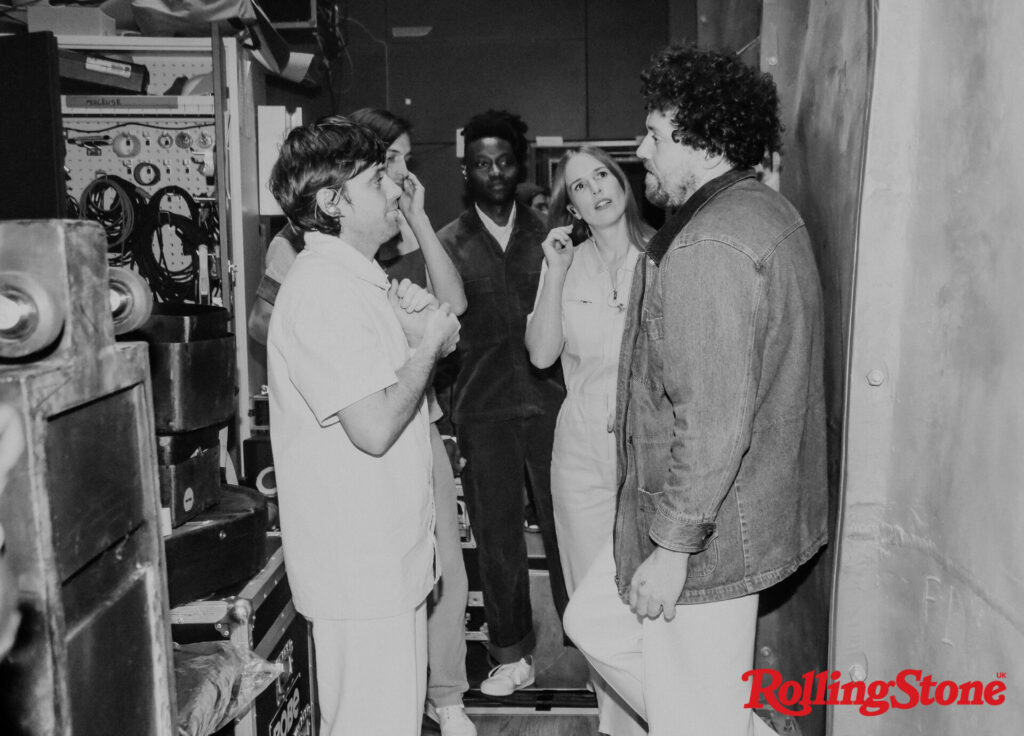
Of all the hyped groups of the era who came and went, it never seemed like they would be the last band standing. “There’s still Foals!” Mount insists. “Well, they’re slightly depleted now; there’s only three of them. One of the reasons Edwin [Congreave] left Foals was to do environmental stuff, and the only time I ever doubt what I’m doing is if I think I could be doing something more useful: I’m not really helping.” He shrugs. “But then, I still think music helps, in all kinds of different ways.”
The bucolic image on the cover of Small World is of Dartington Hall Gardens, part of a 1200-acre estate near Totnes. “The whole place has slightly gone into disrepair,” explains Mount. “But it was a very beautiful garden, and I think that picture captured it at its best.” He confides that he’s getting used to the idea “of something having a lifespan of being good and nice”, and that things don’t always last forever.
His favourite lyric on Small World is on its album closer, ‘I Have Seen Enough’. In it, he sings about appreciating the small joys of existence. “We can watch the flowerbeds rising each year our children grow / I will sit with you in silence as we watch our favourite show,” he sings. But it’s the chorus that seems to get at the crux of life: “I have seen enough / I have seen enough, but I just can’t look away.”
“I felt that neatly summed up the idea of life being fraught with horrible stuff,” he laughs. “You’re just like, ‘Oh my God, I can’t take any more of this horrible stuff.’ But your eyes are still fixed on it. And it’s amazing.”
